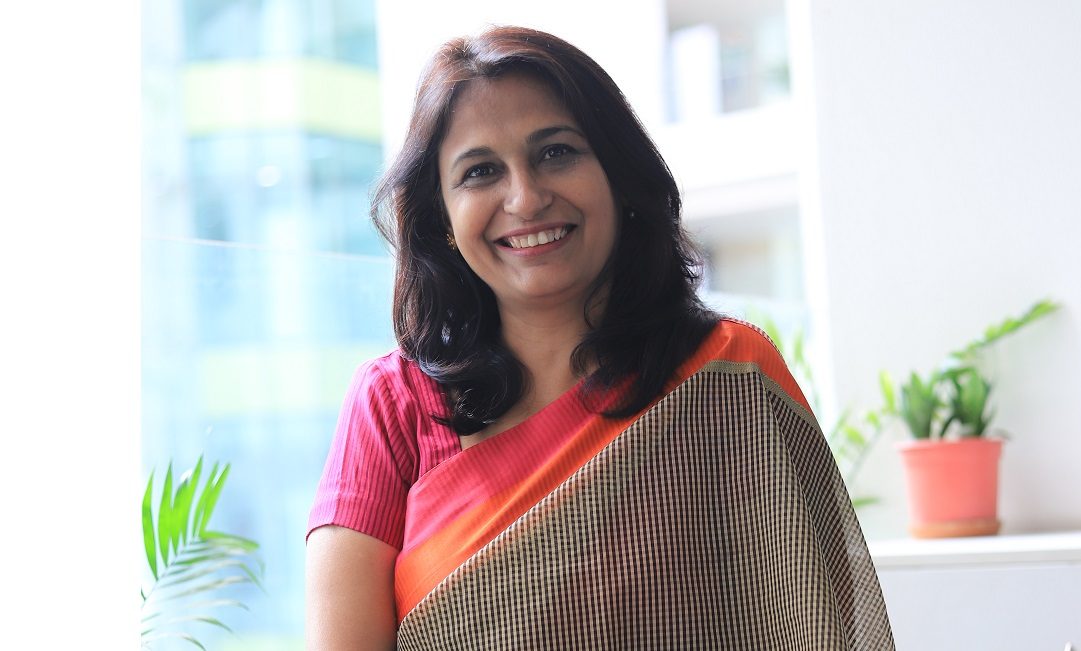Mamta Saikia is CEO, Bharti Foundation and based out of India
What according to you are the successes of gender equality movement which gathered momentum towards the end of the last decade?
Bharti Foundation works primarily in the area of quality education in rural India. Thanks to our Satya Bharti Schools as also our work with Government schools, our reach has extended to over 4000 villages across the country. My travel to many of these villages has given me the privilege to interact with children, parents and communities around the issues of education. Over the years, there are two things that are gathering momentum and have been a very positive movement towards girl-child empowerment.
Foremost, a large section of parents and communities have started to believe that education is as important for girls as it is for boys. This ensures that girls have started to come into schools, though their retention in higher classes requires concerted efforts from all of us. The second aspect and one which inspires me the most is that girls as well as their parents are now building career aspirations. When girls start dreaming about what they would become when they grow up, we have given them wings. We have girl students in our schools who want to start their own beauty parlor and on the other hand those who aspire to join the Army. Each one of these students including the boys, talk about making the lives of their parents easy, by earning a living alongside them.
We have equally inspiring stories around women leadership. In Bharti Foundation’s Satya Bharti Schools, where quality education is given absolutely free of cost to underprivileged children, we have a very robust team of teachers who work every single day to change lives. Of these 73% are women, who also inspire our girl students to make their mark in the world. Over the years, we have seen women take up leadership positions in our schools and today 53% of the Head Teachers are female. Women leaders in village schools act as role models, not only for our students but also for the village community. Our Head Teachers are young leaders, who are setting new benchmarks for what rural women leaders can achieve.
At the start of this decade, what you think should be three priorities for gender equal workplaces?
I would again draw upon our experiences in rural India and our work with women professionals in these areas. Bharti Foundation has over 190 village-based schools, which provide quality education to underprivileged children absolutely free of cost, with a very special focus on the girl child. In our village schools, 53% of the Head Teachers are women. It has been a very structured process – of identifying talent, providing them with opportunities along with the requisite capacity building and mentoring. Our potential leaders are given exposure and training around our school-processes, to augment their competence. On assuming leadership assignments, they are further strengthened through regular hand-holding.
These women leaders are helping communities see the potential of young girls, who are given an opportunity. It is not a surprise therefore, that parents in our schools are planning for the higher education for their daughters, since they can foresee a future where she can realise her potential.
In my interactions with women Head Teachers and teachers, they point out three critical aspects that help them perform to their maximum in Bharti Foundation. These are: (i) respect as a professional, which includes providing opportunities, training and support; (ii) a sense of safety, engendered by a robust grievance-redressal system; and (iii) fairness and transparency in our HR processes. While these are important for all professionals, they matter more to our women teachers than any other.
How important is the role of men in this movement and what according to you should organisations do to involve them? How important is the concept of “Sisterhood” in accelerating change?
It was an approach which involved the entire Foundation team. Starting with transparency in processes, to in-depth HR orientation supported by actions as per policy and a robust exhibition of the management’s commitment. Clarity on processes and outcomes plays a very critical role in ensuring that the entire team works cohesively. In Bharti Foundation where a large section of our employees are women, we have ensured that the HR team has senior women officers as well as the Corporate Ombudspersons office, which also has women leadership. They all provide the required coaching and guidance, as the occasion demands.
Do you think we need a young champion like Greta Thunberg for this cause as well?
Young champions are the voices that represent our future. In our schools, we are grooming future leaders. To sustain the changes that we are seeing on ground, it is important for us that every school has girl role models who inspire young girls in the village. Our Head teachers and teachers act as role models for the community. For the movement of women empowerment to be ingrained in daily life and to ensure its sustainability, our champions have to be many – whether she is in a small village or a big town or the country. And the Satya Bharti Schools of Bharti Foundation are grooming such leaders who proactively inspire change-actions on ground.


